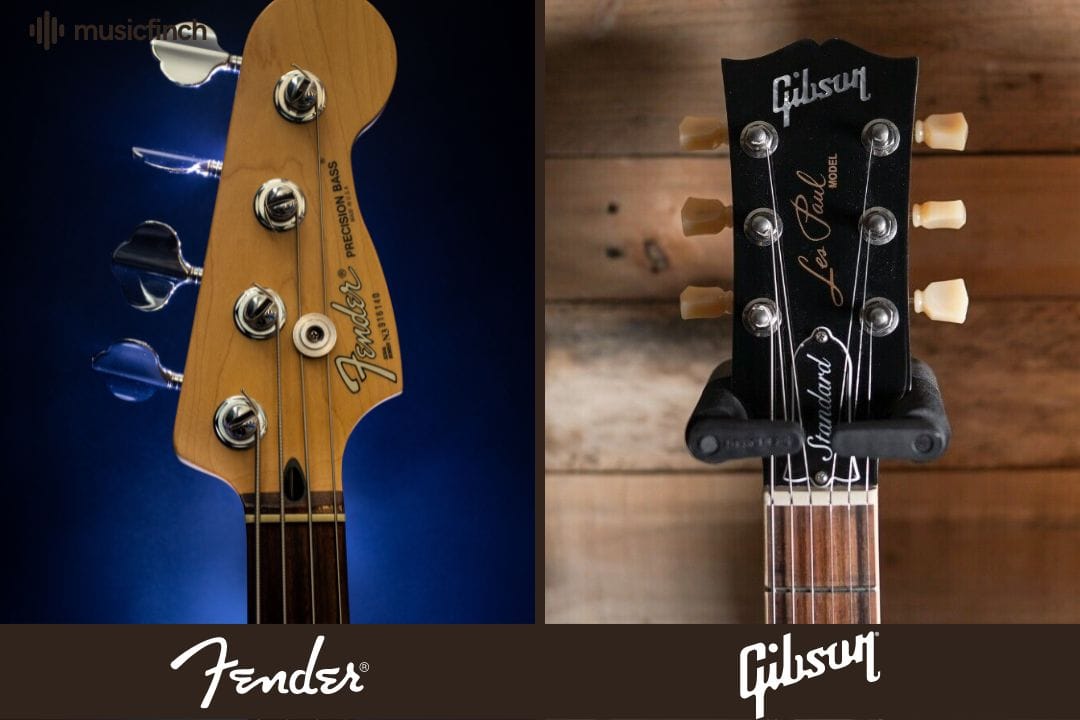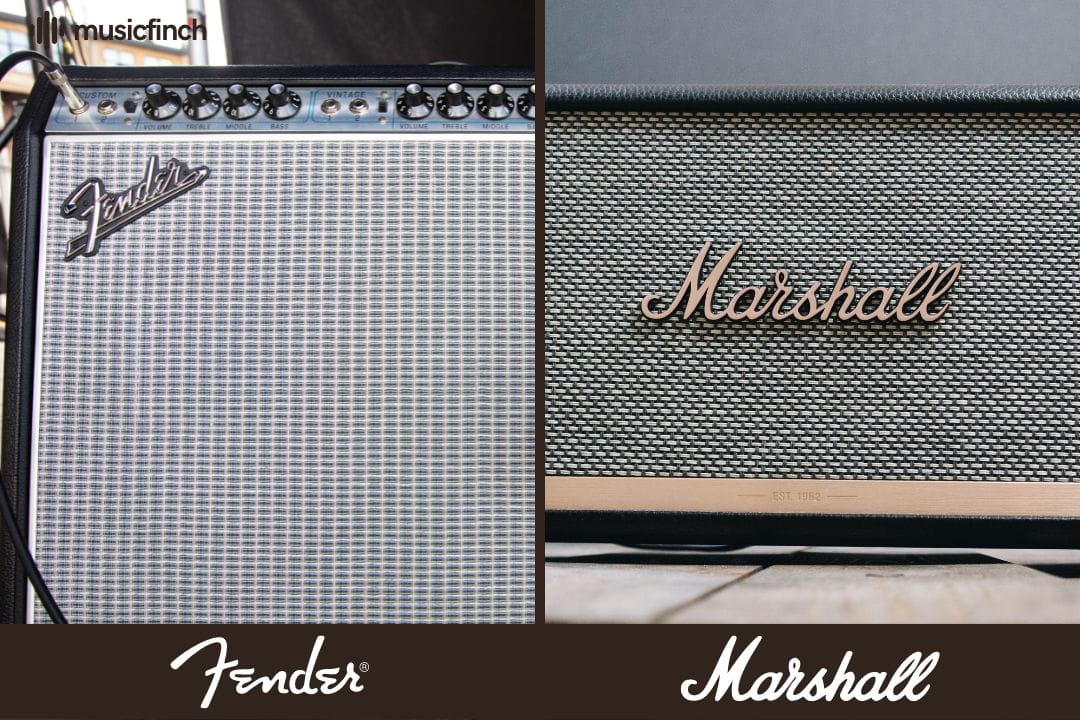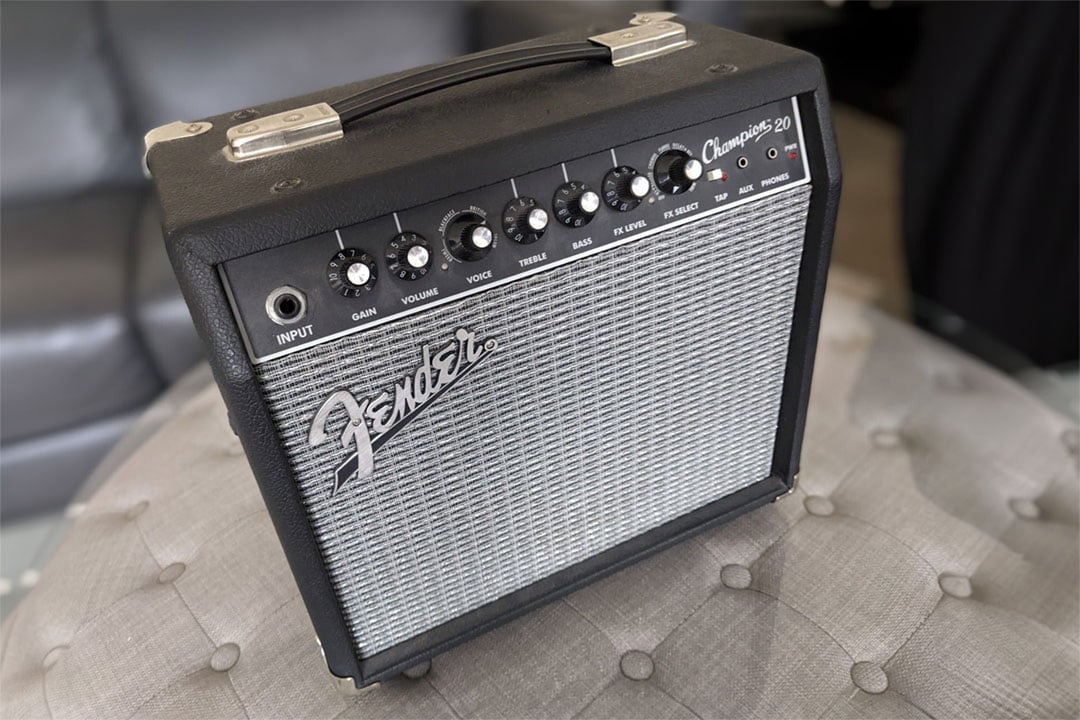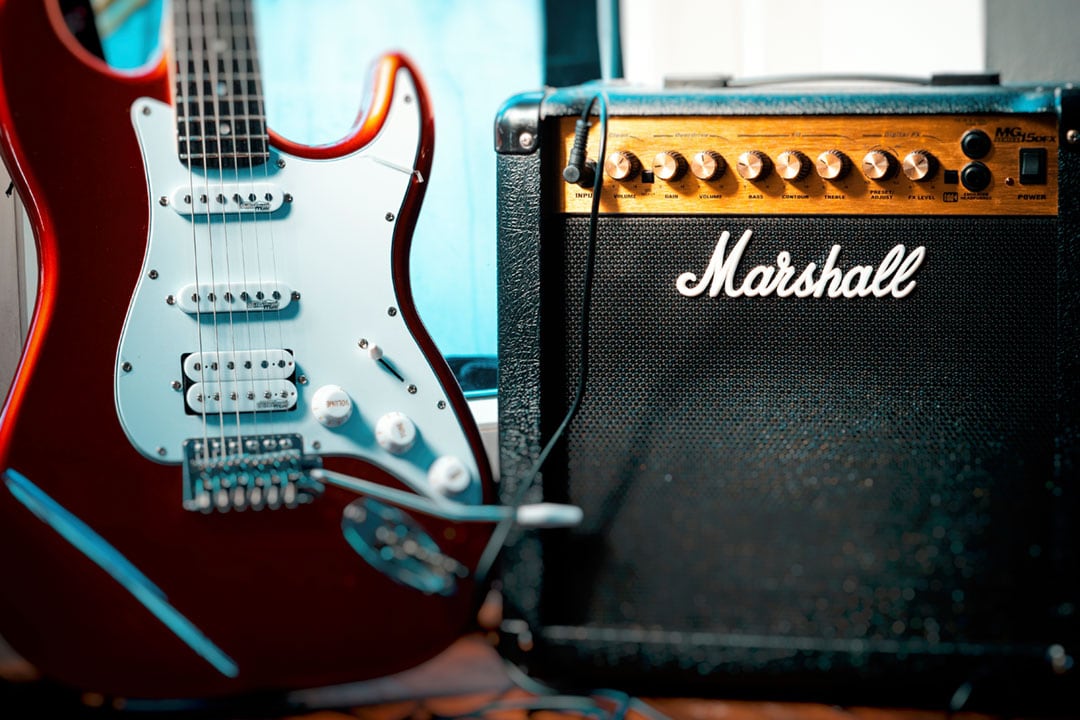Both Fender and Gibson are icons of the guitar world. These American manufacturers have been shaping the sound of countless genres for decades.
Their instruments, specifically Fender’s Telecaster and Stratocaster, as well as Gibson’s Les Paul and SG, have been played by many legendary musicians, each offering a distinct voice and feel that helps define various music forms.
However, when it comes to beginners, which of these brands is better? This article will examine both brands to help make a well-informed choice.
Summary Table
Here’s a helpful table summarizing the primary aspects of both brands for a quick comparison.
| Factors | Fender | Gibson |
|---|---|---|
| Price Range (new) | $600 (player series) to $3000 | $1300 to $5000 |
| Playability | Lighter and slimmer neck profile | Heavier body and thicker neck profile |
| Tone and Sound | Crisp, clear, bell-like tones | Warmer, thicker, and heavier tone |
| Versatility | Highly versatile | Moderately versatile |
Price range

Financial considerations often play a significant role for beginners. Fender and Gibson offer various guitars, from affordable to premium high-end ones.
Let’s look at the introductory price range for both brands:
- Fender: Entry-level Stratocasters like the player series start at around $600. (Fender also offers the Squier sub-brand with prices beginning at just $250)
- Gibson: The most affordable Les Paul costs Around $1300 new.
From a financial perspective, beginners usually lean towards Fender due to the lower entry point.
I highly recommend the Stratocaster player series for beginners:

- Authentic tone and feel from alder body and maple neck.
- Fender-designed pickups produce bell-like chime
- Comfortable, modern C-shaped neck profile
- 9.5″ fretboard radius for ease of play
Playability and Ergonomics

In terms of playability, both brands differ slightly.
- Fender: Fender guitars typically have a lighter body and a slimmer neck profile, making them a more accessible option for beginners who may find a heavier guitar uncomfortable to play for extended periods.
- Gibson: Gibson guitars have more substantial bodies and thicker neck profiles. While this can create a fuller sound, it may demand more effort from a starting player.

- Vintage Meets Modern: Combines the iconic early 60s style with functional, time-tested modifications.
- Signature Sound: Equipped with 60s Burstbucker zebra open-coil pickups, offering that classic Gibson tone with an extra punch.
- Quality Craftsmanship: Mahogany back and maple top for that unmistakable Les Paul sound and durability.
Tone and Sound
The difference in the build of these guitars affects their tone and sound.
- Fender: Fender guitars are renowned for their crisp, clear, bell-like tones. It is ideal for blues, rock, country, and surf music.
- Gibson: Gibson guitars have a warmer, thicker, and heavier tone. They work well for hard rock, blues, jazz, and metal music.
Versatility
As a beginner, you might be exploring various genres of music. Hence, a versatile guitar might appeal to you.
- Fender: Fender guitars are considerably versatile due to their pickup configurations. Integrating single-coil and humbucker pickups allows for a broad spectrum of tones.
- Gibson: Gibson guitars, though primarily known for humbucker pickups, do have a range of tones but might not offer as much versatility, especially for those into lighter genres of music.
In My Opinion
From years of personal experience with both Fender and Gibson guitars, I believe both brands have unique offerings for aspiring guitarists.
Having taught many students, I noticed that beginners tend to grasp Fender guitars more quickly because of their lighter weight and slimmer neck profiles.
The lighter feel and the ease of playability are huge confidence-builders for a new player.
However, a guitar’s tone is deeply personal, and Gibson, with its warm and full-bodied sound, also has its distinct appeal.
In my early years of playing, I favored Gibson’s thick tones, especially while playing blues and rock.
Learning on a Fender can initially feel more comfortable, especially for those unsure about investing heavily.
There are also stratocaster style guitars from other brands, that can be even better in that aspect.
Yet, I’ve seen students switch up or add a Gibson as their skills improved and their desire to explore new tones increased.
Getting your hands on both guitars, feeling them, and examining how their unique characteristics speak to you offers valuable insights.
Regardless of your path, Fender and Gibson have been and will continue to be quintessential tools in crafting beautiful and timeless music.




